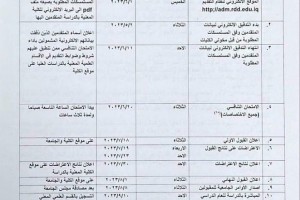
Ph. D thesis at the faculty of science at the University of Basraha (Molecular investigation of CRISPR system and some antibiotics resistance genes in Escherichia coli isolated from urinary tract infections UTIs patients in Basrah governorate), and showed the researcher's thesis (Ahmed Jasim Mohammed) The CRISPR system is present in 87% of the Archaea genome and in 50% of the bacterial genome. It has a major role in the defense mechanism as a natural adaptive immunity in bacteria. Thesis aims to Detection extended spectrum β-lactamase ESBLs genes type in the local E coli isolates. Detect carbapenem genes among the local E coli isolates. Determine the distribution of the CRISPR system among the local E coli isolates. The current study reported that most of the E. coli, isolated during this study, harbored CRISPR locus sequences (spacers and repeats) were resistance to ESBLs. It reveals a positive relationship between the spacers number and the antibiotic resistance ability, particularly against ESBL in the tested isolates, and concluded the current study that all E.coli isolates isolated from urinary tract infections have a high ability to produce carbapenemase to resist carbapenem and ESBLs to resist beta-lactam antibiotics except for carbapenems. The study concluded that most of the E.coli isolates containing CRISPR spacers and repeats were resistant to ESBLs, and the study was recommended using Polymerase Chain Reaction PCR in Iraqi hospitals, specifically in Basrah province, for the identification and detection of pathogenic bacteria that produce carbapenemase and (ESBLs). More research is required to identify the various forms of carbapenemase and extended-spectrum β-lactamases enzymes in pathogens often isolated from Iraqi patients, the study also recommended performing a drug sensitivity test before giving the treatment.









